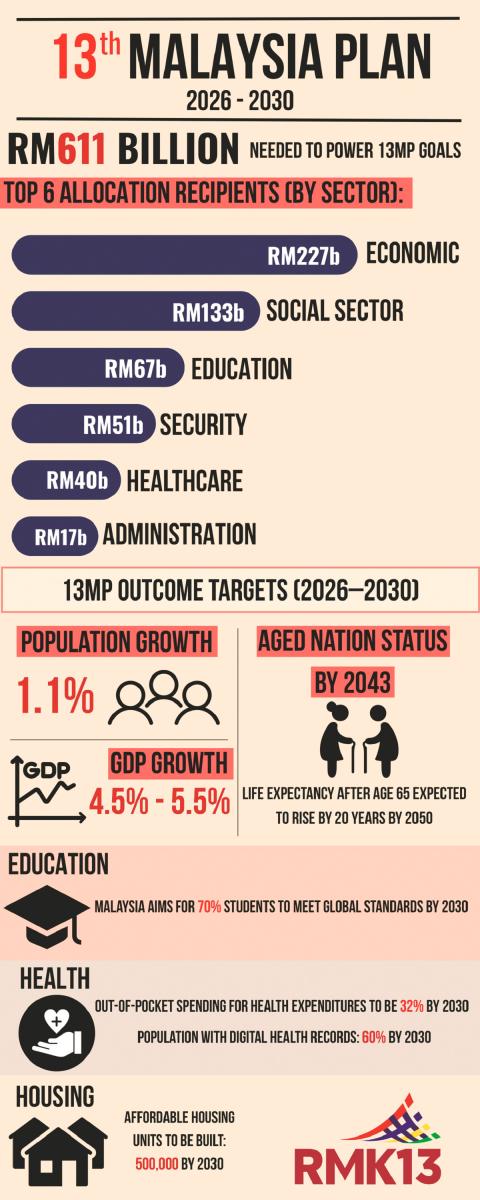PETALING JAYA: The government’s RM67 billion education allocation under the 13th Malaysia Plan has been widely welcomed as a bold move to fix long-standing weaknesses in Malaysia’s school system, but experts say money alone won’t be enough.
National Association of Private Educational Institutions deputy president Dr Teh Choon Jin said the funding signals strong political will to tackle critical issues like dilapidated infrastructure and overcrowded classrooms. Still, he stressed that effective execution is what will determine success.
“While the RM67 billion allocation is impressive, real impact depends on how well these plans are carried out on the ground. Without strong implementation, consistent monitoring and real support for teachers and schools, especially in rural and underserved areas, there’s a risk the reforms may fall short of their potential.”
Among the plan’s major targets is boosting enrolment to 98% for both preschool and secondary school.
Teh called this goal “ambitious but not impossible,” noting that Malaysia is already close to the mark for secondary education.
“With sustained outreach, improved retention efforts and support for at-risk students, it’s within reach.”
However, he warned that preschool enrolment remains a tougher nut to crack, especially in lower-income and remote areas.
“It is more challenging, particularly in rural and lower-income areas where access, affordability and awareness are barriers. Making preschool compulsory from age five is a positive step, but its success will depend on sufficient qualified teachers, accessible centres and inclusive outreach efforts.”
Teh also welcomed the government’s plan to strengthen STEM (Science, Technology and Mathematics), digital literacy and artificial intelligence (AI) education in schools, saying it’s a timely step toward preparing students for the future workforce.
“Students today will face a job market that is expected to be vastly different in the future. But to truly prepare students for the future, reforms must go beyond updated syllabuses. “Teachers need proper training, schools require adequate facilities and all students – regardless of where they live – must have equal access to quality education. It is a promising step, but the real challenge is ensuring that no student is left behind as these changes take shape.”
Teh also urged the government to empower the proposed National Education Council with more than just an administrative role.
“Its main job shouldn’t be limited to coordination. It must actively monitor outcomes, hold institutions accountable and provide evidence-based guidance to adapt reforms as needed.
“The council needs diverse, non-political representation, transparency in decision-making and the authority to intervene when implementation falls short. Without safeguards, there’s a risk it could become just another bureaucratic layer rather than a driver of meaningful change.”
Parent Action Group for Education Malaysia (PAGE) chairperson Datin Noor Azimah Abdul Rahim said the budget reflects the government’s prioritisation of education – but urged that focus shift from allocation to impact.
“The RM67 billion reflects that education is a national priority, but how the money is spent matters far more than the amount itself.”
She said investments in teacher training, curriculum reform, digital infrastructure, inclusive education and early childhood development will pay off only if outcomes are tracked and gaps addressed.
“Malaysia must prioritise rural and underserved areas for compulsory preschool from age five by expanding infrastructure, sending qualified teachers, giving financial aid, engaging communities and using flexible teaching models to ensure all children have access.
“Effective implementation will require collaboration between federal, state and local governments, alongside civil society and the private sector.”









